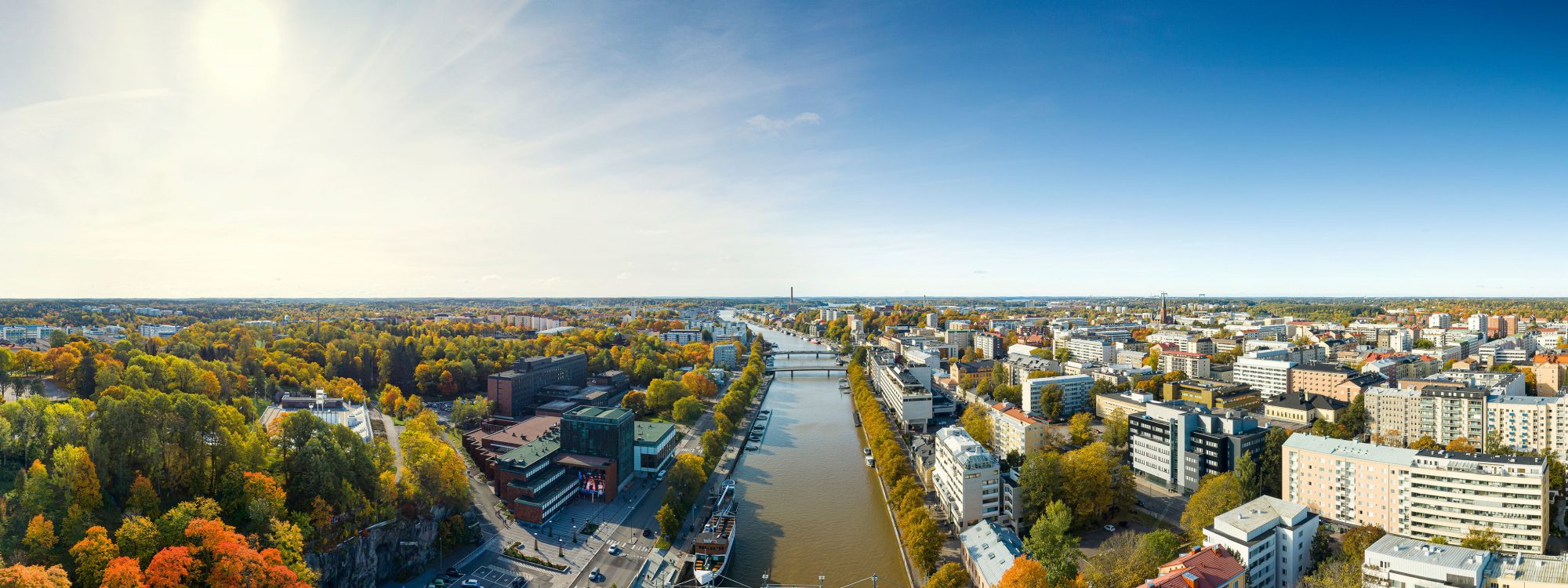Finnish Family Research Conference 2022
Families, close relationships and resilience
This year, the Finnish Family Research Conference is being organized in cooperation with the Discipline of Psychology at the University of Turku and the Association for the Study of Families and Close Relations. The conference is open to all researchers and students interested in the topic and to professionals working with families.
Four distinguished researchers in the field will be offering keynote speeches: Professor Michael Ungar, Dalhousie University, Canada; University Lecturer David Pålsson, the University of Stockholm, Sweden; Assistant Professor Linnea Karlsson, University of Turku, Finland; and Assistant Professor Noona Kiuru, University of Jyväskylä, Finland.
The Family Research Conference will focus on families, close relationships, and resilience. “Resilience” has many definitions, but most often, it refers to the ability of an individual, community, and system to adapt, survive, and recover from crises and change. Today, the concept of resilience is used in many ways. For example, “family resilience” has been defined from a systemic perspective as a family’s ability to cope with challenging life situations.
The aim of the conference is to reflect on resilience in family and close relationships from the perspectives of different disciplines and orientations and to increase multidisciplinary dialogue. The importance of resilience has become a central topic, especially during the COVID-19 pandemic, when exceptional circumstances have required flexibility, the rapid introduction of new solutions, and optimism. Through keynotes and presentations, the following example questions will be touched on during the days: How does resilience appear in studies of families and relationships? How can resilience be enhanced through interventions for individuals themselves, their families, close relationships, or communities? How can a changing service system for families and intimacy take advantage of perspectives in resilience research? What new insights have the recent crises brought to light on the importance of resilience for the survival or well-being of families?
Picture: Turku Convention Bureau
Welcome to Turku and the Family Research Conference!
Partners:
the Association for the Study of Families and Close Relations
Department of Psychology and Speech-Language Pathology, University of Turku
Sote Academy
LASTU
EduRESCUE
ITLA, Children’s Foundation
Program
University of Turku, Publicum
Thursday, November 10, 2022
10:00-12:00 – Publicum
- Registration
12:00 – 12:15 – Pub1
chair Sari Ahlqvist-Björkroth
- Opening of the Family Research Conference 2022
- Opening speech by Anna-Maija Castrén, University of Eastern Finland, assistant professor, chairman of the board of the Association for the Study of Families and Close Relations
12:15 – 12:25 – Pub1
- Greetings from the University of Turku / vice-rector Kalle-Antti Suominen
12:25 – 12:45 – Pub1
- Speech and announcement of the winner of the Lea Pulkkinen Award: Child’s Status in Family Research by Professor Lea Pulkkinen
12:45 – 13:00 – Pub1
- Acceptance speech by the award winner
13:00 – 13:45 – Pub1
chairs Rosi Enroos and Miika Vuori
- Keynote speaker: “Privatization of out-of-home care for children – Current situation and implications,” Lecturer and Researcher David Pålsson, Stockholm University, Sweden
13:45 – 14:00
- Discussion
14:00 – 14:45
- Coffee break
14:45 – 15:30 – Pub1
chairs Jaanet Salminen and Kaisa Malinen
- Keynote speaker: “EduRESCUE: Oppilaiden hyvinvointi ja oppiminen koti- ja kouluympäristöissä,” Apulaisprofessori Noona Kiuru, Jyväskylän yliopisto
15:30 – 15:45
- Discussion
15:45 – 16:15
- Coffee break
16:15 – 18:00 – Publicum
19:00 – 21:00 – Publicum
- Evening party:
- Welcome / Paula Salo, professor, University of Turku
- Evening buffet
- Music
- Surprise program
- Socializing
- Welcome / Paula Salo, professor, University of Turku
Friday, November 11, 2022
9:00 – 11:00 – Publicum and Educarium
11:00 – 12:00 – Pikku Maccia
- Lunch
12:00 – 12:45 – Pub1
chairs Riikka Korja and Niina Junttila
- Keynote speaker: “Systemic approaches to nurturing resilience among children, youth, and families with complex needs,” Professor Michael Ungar, Dalhousie University, Canada
12:45 – 13:00
- Discussion
13:00 – 13:30
- Coffee break
13:30 – 14:15 – Pub1
chairs Eeva-Leena Kataja and Miia Tuominen
- Keynote speaker: “Hyvä ja paha stressi: mikä suojaa ja mikä altistaa stressin terveyshaitoille?” Apulaisprofessori Linnea Karlsson, Turun yliopisto
14:15 – 14:30
- Discussion
14:30 – 15:15 – PUB1 Sari Ahlqvist-Björkroth and Riikka Korja
- Panel discussion
15:15 – 15:30
- End of the Finnish Family Research Conference 2022
Participating remotely
Participating remotely
The Finnish Family Research Conference 2022 will be organized as a hybrid event, so it will be possible to participate remotely via Zoom. The main speeches can be observed through one Zoom link, and for each workshop, there will be a separate link. Specific Zoom links and more details will be published later.
NOTE! For those, who participate remotely, specific Zoom links will be delivered beforehands by email . If you have not received the Zoom links, please contact info@aboaservices.fi
Speakers

Michael Ungar, Ph.D., Family Therapist and Professor of Social Work at Dalhousie University
Dr. Ungar holds the Canada Research Chair (Tier 1) in Child, Family and Community Resilience. Dr. Ungar holds an MSW from McGill University and a PhD in Social Work from Wilfrid Laurier University. Since 2002, Dr. Ungar has directed the Resilience Research Centre, designing multisite longitudinal research and evaluation projects in more than a dozen low, middle, and high-income countries, with much of that work focused on the resilience of marginalized children and families, and adult populations experiencing mental health challenges. Building on his work as both a researcher and clinician, Dr. Ungar has published over 200 peer-reviewed articles and book chapters on the subject of resilience and is the author of 17 books for mental health professionals, researchers and lay audiences. These include an edited volume titled Multisystemic Resilience: Adaptation and Transformation in Contexts of Change, and his 2019 release, Change Your World: The Science of Resilience and the True Path to Success, a book for adults experiencing stress at work and at home. His blog, Nurturing Resilience, can be read on Psychology Today’s website.
Systemic Approaches to Nurturing Resilience Among Children, Youth and Families with Complex Needs
When working with children, youth and families who experience multiple challenges (whether from addictions, mental health problems, or social marginalization caused by poverty, family violence, racism, and other factors), providers of mental health and social services can have a greater influence when they focus less on problems and more on the factors that promote resilience. In this engaging, story-filled presentation, Dr. Ungar will show that resilience is a process that is nurtured by service providers who match their interventions to the needs of families, negotiating to make services culturally and contextually relevant. This presentation will discuss a multisystemic approach to service design and delivery that makes mental health and social services strengths-focused and resistance-proof, drawing on the capacity of a client’s friends, extended family members, teachers and community as potential sources of support. Attendees will learn how to identify and encourage nine factors associated with resilience. The core principles of the approach, navigation and negotiation, will be discussed in relation to several service design principles that combine clinical work with advocacy and case management to create effective services that families value. Several themes will be discussed with regard to service design, including coordination of services for families across “silos”, continuity of services over time, the need for cultural sensitivity, and how services can demonstrate effectiveness.

David Pålsson, PhD, is a lecturer and researcher at the Department of Social Work, Stockholm university. His research interests concern child welfare, in particular foster and residential care. He has conducted research regarding for example privatisation, inspection, local supervision and children’s participation.
Privatisation of out-of-home care for children – current situation and implications
During the latest decades, Nordic child welfare has undergone New Public Management reforms and there is more private provision (often for-profit) of services. The lecture will discuss outsourcing of out-of-home care, both private foster care agencies (who recruit and support foster homes) as well as residential care units (who provide care and treatment to children and adolescents). Based on Swedish and Nordic studies, the lecture will reason about the background, development, implications and questions of principle that the development raises for the quality of care for children and families.
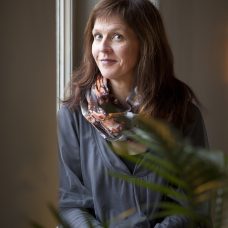
Linnea Karlsson, apulaisprofessori, on toinen FinnBrain Cohort Study -tutkimuksen perustajista ja toimii hankkeen varajohtajana (https://sites.utu.fi/finnbrain/en/). FinnBrain on syntymäkohorttitutkimus, joka selvittää raskaudenaikaisen ja varhaislapsuuden stressialtistuksen vaikutuksia lapsen aivoihin ja psykososiaaliseen kehitykseen. Linnea Karlsson on lasten- ja nuorisopsykiatrian erikoislääkäri ja hänellä on pitkäaikainen kokemus kliinisestä työstä Turun yliopistollisessa keskussairaalassa. Tällä hetkellä hän toimii tenure track -professorina Turun yliopistossa ja apulaisjohtajana Turun yliopiston ja Varsinais-Suomen sairaanhoitopiirin Väestötutkimuskeskuksessa, jossa on useita edustavia väestön terveyteen liittyviä pitkittäishankkeita. Hän toimi Mannerheimin Lastensuojeluliiton puheenjohtajana vuosina 2015-2017 ja on tällä hetkellä Suomen Aivosäätiön hallituksen jäsen.
Hyvä ja paha stressi: Mikä suojaa ja mikä altistaa stressin terveyshaitoille?
Stressi kuuluu jokapäiväiseen elämäämme, eikä kaikki stressi suinkaan ole vahingollista tai terveydelle haitallista. Jos stressiä kuitenkin on liikaa tai kuormitus on liian pitkäkestoista suhteessa yksilölliseen vastustuskykyymme (resilienssi) nähden, stressi voi muuttua toksiseksi. Altistuminen kielteisille elämäntapahtumille on yhteydessä useiden eri sairauksien riskiin elämänkaaren eri vaiheissa. Resilienssi on osittain perimän ohjaamaa, mutta monet ympäristötekijät vaikuttavat siihen merkittävästi. Esimerkiksi lapsen ja vanhemman välinen vuorovaikutus tai muiden ihmissuhteiden laatu voi toimia stressin haittoja puskuroivana tekijänä. Tämänkin vuoksi vanhemman terveydentilasta huolehtiminen on mielekäs toimenpide, kun halutaan tukea lapsen kehitystä. Lapsen omien stressinsäätelykeinojen tukeminen ja toksiselta stressiltä suojeleminen on myös tärkeää.
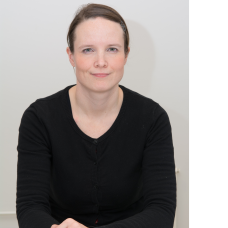
Noona Kiuru, PsT, kehityspsykologian apulaisprofessori, psykologian laitos, Jyväskylän yliopisto
Noona Kiuru on nuorten oppimista, hyvinvointia ja onnistuneita koulusiirtymiä tutkivan TIKAPUU-pitkittäistutkimuksen sekä nuorten hyvinvointia edistämään pyrkivän Nuorten Kompassi -interventiotutkimushankkeen johtaja. Lisäksi hän toimii varajohtajana Suomen Akatemian yhteydessä toimivan strategisen tutkimusneuvoston rahoittaman EduRESCUE-Resilientti koulu ja koulutus -hankkeen työpaketissa 2, jossa tarkastellaan oppilaiden hyvinvointia ja oppimista koti- ja kouluympäristöissä ennen, jälkeen ja koronapandemian aikana.
Tutkin lasten ja nuorten hyvinvoinnin ja oppimisen kehitystä eri kasvuympäristöissä sekä tätä kehitystä ennakoivia riski- ja suojaavia tekijöitä. Esityksessäni kerron etenkin Suomen Akatemian yhteydessä toimivan strategisen tutkimusneuvoston rahoittaman PANDEMIC-ohjelmaan kuuluvan EduRESCUE-Resilientti koulu ja koulutus -hankkeesta (www.edurescue.fi). Kyseessä on monitieteinen tukimus- ja kehittämishanke, jossa tutkitaan laaja-alaisesti COVID-19-pandemian vaikutuksia kouluihin, oppilaisiin, huoltajiin, opettajiin ja rehtoreihin. Hankkeessa etsitään ratkaisuja siihen, miten vahvistamme suomalaisen koulutusjärjestelmän resilienssiä ja parannamme yhteiskuntamme kykyä selviytyä kriiseistä tulevaisuudessa. Hankkeessa kehitetään toipumisen tiekartta kuvaamaan toimia, joita resilientimmän koulutusjärjestelmän rakentaminen edellyttää. Tarkemmin kerron EduRESCUE-hankkeen työpaketista 2, jossa tarkastellaan oppilaiden hyvinvointia ja oppimista koti- ja kouluympäristöissä ennen, jälkeen ja koronapandemian aikana.
Workshops
Collection of Abstracts: ABSTRAKTIKOOSTE
1) Muuttoliike ja perheiden resilienssi
2) Moninaiset isät ja isyydet
3) Varhainen vuorovaikutus ja perhesuhteet lapsen kehitystä suojaavana tekijänä
4) Institutionaalinen neuvottelu lapsen ja vanhemman suhteista
5) Toimijuus ja läheissuhteet elämänkaaren murroskohdissa
6) Yksilölliset ja puolisoiden väliset kehitys- ja oppimisprosessit varhaisvanhemmuuden resilienssin lähteenä
7) Suhdeperustaisuus lapsi- ja perhepalveluissa
8) RESPA – Resilienssin edistäminen palveluiden tavoitteena ja perheenjäsenten osallisuus palvelujärjestelmissä
9) Vanhemmuuden resilienssitekijät
10) Keskosena syntyneen lapsen ja hänen perheensä resilienssin tukeminen
11) Avoin työryhmä
12) Current perspectives on family research
This workshop will be held in English.
| Saana Raittila-Salo | Ethnographic network research: Mapping socializing and caregiving for people of Mozambican background living (well) with dementia in rural South Africa |
| Ryo Itoshima | Association between COVID-19 restriction measures in neonatal intensive care units and mothers’ postpartum depressive symptom |
| Johanna Järvinen-Tassopoulos, Henna Pirskanen & Virve Marionneau | Addictive relationships in families suffering from gambling problems during the COVID-19 pandemic |
| Gill Thomson | Resilience and post-traumatic growth in the transition to motherhood during the COVID-19 pandemic: A qualitative exploratory study |
| Annika Lehtonen | Navigating family interdependence of street-connected children in Recife, Brazil |
Abstract submission
The abstract submission is closed. Thank you for sharing your work with us!
Registration
Submit your registration here: Registration
Attendance fees
The registration fee includes attendance in the scientific programme, congress materials, coffee and lunch as marked in the programme. Note! The evening party has a separate fee, 30,00 eur (incl. VAT 24 %), including buffet dinner and drinks.
| Member price * | 160 EUR |
| Participant, non-member | 190 EUR |
| Undergraduate students | 40 EUR |
| Postgraduate students | 70 EUR |
| Working group leaders | 60 EUR |
| Remote participation, member | 120 EUR |
| Remote participation, non-member | 150 EUR |
* The membership price applies to members of the Perheiden ja läheissuhteiden tutkimusseura (PELS, www.pels.fi).
——————————-
The registration fees are invoiced by Aboa Congress and Event Services (VAT FI2805028-8) on behalf of the local organiser University of Turku (VAT FI0245896-3 ) whose scientific conferences are exempted from VAT, except for possible additional social programme tickets.
——————————-
Methods of payment
1) Credit card payment.
On the registration form, choose the credit card payment and fill in the payment card details. Payment service provider Paytrail Plc.*
2) Online bank payment (for Finnish/Nordic banks only)
On the registration form, choose your bank, and you will be forwarded to the payment service. Payment service provider Paytrail Plc.*
3) PDF invoice (payment with bank transfer). No invoicing fee.
A PDF invoice will be sent to your e-mail address after you have submitted your registration. Terms of payment: 14 days net.
4) E-invoice (for Finnish organisations only). No invoicing fee.
An e-invoice will be sent to the e-invoicing address provided. Terms of payment: 14 days net.
* Paytrail Plc (FI2122839-7) acts as a collecting payment service provider in cooperation with Finnish banks and credit institutions. Paytrail Plc is authorized payment institution. Paytrail Plc appears as the payee on the bank statement or card invoice and forwards the payment to the event organizer. In case of reclamations, please contact the event organizer.
Cancellation
Cancellation of registration must be made in writing (email) to info@aboaservices.fi before 10 October 2022. No fees will be refunded after this date (participation can be transferred to another person). A processing fee of EUR 50 will be deducted from all refunds.
In the event that the meeting is cancelled by the Meeting Organisers, or cannot take place for any reason outside the control of the Meeting Organisers, the registration fee shall be refunded in full. The liability of the Meeting Organiser shall be limited to that refund.
Participating remotely
The Finnish Family Research Conference 2022 will be organized as a hybrid event, so it will be possible to participate remotely via Zoom. The main speeches can be observed through one Zoom link, and for each workshop, there will be a separate link. Specific Zoom links and more details will be published later.
NOTE! For those, who participate remotely, specific Zoom links will be delivered beforehands by email . If you have not received the Zoom links, please contact info@aboaservices.fi
Information
DATES OF IMPORTANCE
| 23.5.-20.6.2022 | Workshop submission open |
| 27.6.2022 | Acceptance of workshops |
| 15.8.-23.9.2022 | Abstract submission |
| 29.6.2022-4.11.2022 | Conference registration open |
| 3.10.2022 | Acceptance of abstracts |
| 10.-11.11.2022 | Finnish Family Research Conference |
VENUE
The University of Turku
Publicum and Educarium, Assistentinkatu 5 ja 7
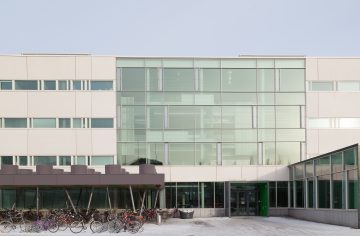
Picture: Noora Mela, The University of Turku / Mediabank
Turku
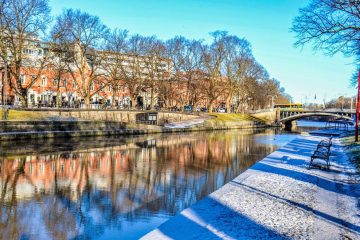
Picture: Pekka Vallila / Turku Convention Bureau
The oldest city in Finland has much to offer!
The leisurely flowing Aura River is the heart and living room of Turku and an important element in Turku’s image. A five-kilometre-long pe-destrian and cycling route follows the river on both banks, travelling through the Finnish national landscape. At the end of the harbour, passers-by have a lovely view of Turku Castle, while walk-ing towards the upper reaches of the river will take them to Turku Cathedral. Along this route, there are various market squares, such as Varvintori Square, Vähätori Square, Cathedral Square and the Old Great Square. Most of the city’s museums, restaurants, hotels and attractions can also be found on the banks of the Aura River.
Text: Turku Convention Bureau
ORGANIZERS
The conference is organized in co-operation with the Discipline of Psychology in the University of Turku and the Association for the Study of Families and Close Relations.
Conference committee
Sari Ahlqvist-Björkroth, postdoctoral researcher, University of Turku
Niina Junttila, professor, University of Turku, University of Jyväskylä, Councellor of education, National board of education
Oona Ylönen, specialist social worker, professor of practice, University of Turku
Miia Tuominen, research manager, University of Turku
Johanna Lindstedt, doctoral researcher, University of Turku
Riikka Korja, professor, University of Turku
Jussi Mertsola, adjunct professor, University of Turku
Miika Vuori, specialist researcher, University of Turku
Rosi Enroos, university lecturer, University of Tampere
Eeva-Leena Kataja, postdoctoral researcher, University of Turku
Jaanet Salminen, university lecturer, University of Turku
Accommodation
NOTE! Temporary traffic arrangements for the rail services between Turku and Helsinki! From 15 August 2022, the end stop of the Helsinki–Turku–Helsinki train will be in Kupittaa.
Conference guests can book their accommodation themselves. We offer some options to consider, please read through the following and choose the best for you.
1) Scandic Julia
www.scandichotels.fi
110 € Standard room for one person (incl. breakfast) / night
130 € Standard room for two persons (incl. breakfast) / night
You can make your reservation directly at: http://www.scandichotels.fi/?bookingcode=BTUR091122
You can book using the reservation code BTUR091122 also by phone and by email. Rooms are available until 26.10.2022.
2) Sokos Kupittaa
www.sokoshotels.fi
95€ Standard room for one person (incl. breakfast) / night
115 € Standard room for two persons (incl. breakfast) / night
Choose hotel: Sokos Kupittaa
Enter the reservation code: BPERHE2022
You are able to check if rooms with special price are available and book your stay.
Contact
Contact:
ptp2022@utu.fi
Sari Ahlqvist-Björkroth, Ph.D, postdoctoral researcher
sarahl@utu.fi
Johanna Lindstedt, MA, doctoral researcher
johmat@utu.fi
